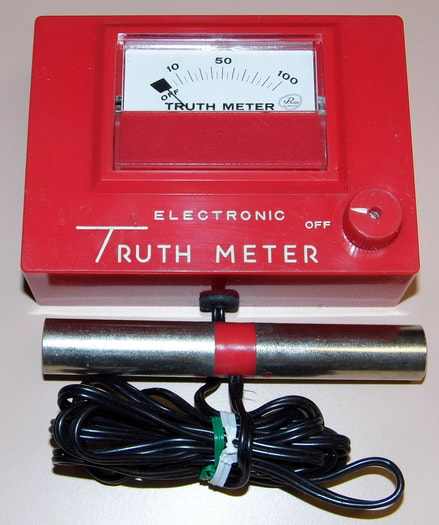Truth was, after all, completely subjective.
Not that I’d been born a relativist. I had once known certain things to be true – my Granny was the best, there were parts of the world where it never snowed, lying to Momma about sleeping over at Rosie’s so that we could sleep out in our back yard was very dumb, and starving children in China would be grateful for my rutabaga.
But somewhere along the line, I had fallen for the idea that your interpretation of truth was every bit as valid as mine.
How this happened, I’m not sure. It might have had something to do with studying Russian History at UWM and doing a term paper on the Soviet definition of “Pravda,” which apparently means “truth.” In the course of researching this subject, I learned that to the Communists, truth was anything that was good for the Communist Party. To write my paper, I had to get to the point where this definition made some sense to me; maybe the mental gymnastics this exercise required had impaired my ability to recognize objective truth.
Or maybe it was the fallout from an analysis I did, for another college paper, on the Big Three news magazines’ treatment of the Thomas Eagleton affair in the 1972 presidential campaign.
“I don’t know what’s true anymore,” I’d told a classmate I’ll call Ginny on the way out of class the day we turned our papers in.
“Because Nixon won after all?” she asked, remembering that my paper had had something to do with the McGovern campaign.
I shook my head. “Because I discovered that U.S. News & World Report is the most objective of the news magazines.”
“Ha!” Ginny laughed delightedly; she was the first conservative kid I’d ever known, and I hadn’t yet taken the Econ 101 class that would show me the error of my ways. U.S. News was her magazine of choice; Time was mine. “Let’s go get a drink and you can tell me all about it,” she added.
We headed over to a dive of a bar on Oakland Avenue – one of my favorite bars, it featured a grungy atmosphere, largely disgusting clientele, and great prices.
“So tell me about it,” she said after we’d seated ourselves in a booth with our drinks – a Lite beer for me, a rum and coke for her.
“You remember Eagleton, don’t you? McGovern’s vice presidential candidate?”
She grinned and nodded. “I remember.”
“Right,” I said, wondering how someone I liked so much could have been on the wrong side in the McGovern/Nixon race. “So you remember when it came out that Eagleton had been treated for depression?”
“Yes – with electroshock, I think. Pretty scary that McGovern would choose someone with that kind of past as his running mate.”
“I don’t know about that,” I said. “But what was scary was that at first the news media were all over McGovern for saying he would stand by Eagleton – all of them, even Time and Newsweek. U.S. News, too, of course – that was to be expected.”
“McGovern was practically a Communist,” Ginny said in apparent defense of all three magazines.
“Separate issue,” I said evenly, saving that argument for another time. “My point is that when McGovern caved in to their pressure, and replaced Eagleton with Shriver, all of a sudden the press went nuts on him for dumping on the mentally ill! All of them, that is, except for U.S. News & World Report.”
“They stuck to their guns?”
“Yes,” I admitted, though it pained me to say so. “U.S. News said that McGovern had done the right thing.”
“Objective reporting is alive and well somewhere,” she said. “I’m glad to hear it.”
“Objective reporting?" What a funny thing to say. “Of course it’s alive and well. And it always will be. How can you doubt it?”
**************
Except I’d been horribly wrong about that; the Time and Newsweek flip-flops were just the opening salvos in the mainstream news media’s all-out attack on objective truth.
“It is not enough to refrain from publishing fake news or to take ordinary care to avoid mistakes,” said newspaper-publishing legend Joseph Pulitzer many years ago. “You’ve got to make everyone connected with the paper believe that accuracy is to a newspaper what virtue is to a woman.”
I knew from first-hand experience what happened to a woman’s virtue. By the 1990s, the same thing had apparently befallen American journalism – in the process, nurturing a subjective, devil-may-care attitude towards truth in stony hearts like mine.
(From Heaven Without Her, pages 88-90)

 RSS Feed
RSS Feed